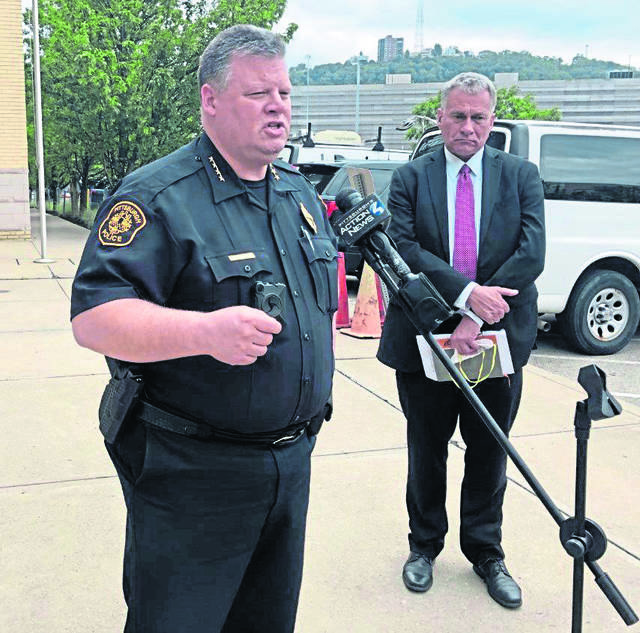Pittsburgh police Chief Scott Schubert says he is committed to doing better.
That is the place every improvement should start. Now seems to be the perfect time for such a commitment. After all, the new year is just days away.
“We’re always evolving, always striving to be better,” Schubert said in a Tuesday meeting with City Council members, detailing what the force has done in reaction to the Community Task Force on Police Reform that was convened in June.
The chief’s statement could be an example to other law enforcement leaders. It should be the goal that communities aspire to achieve.
In 2020, police often have been painted as the enemy. From the death of George Floyd in Minnesota to the shooting of Breonna Taylor in Kentucky to the Wednesday shooting of Andre Maurice Hill in Ohio, Black individuals coming into deadly contact with police has prompted protest and calls for change.
No one is well served when the police are feared rather than trusted partners. The majority of officers choose the work because of a belief in protecting and serving. Reforms aren’t just necessary for the sake of the public — they are for the benefit of the excellent public servants doing a demanding job. Police officers put their lives on the line every day.
Elected officials seek to find a way to balance the crushing weight of huge issues and institutional timelines, and that can take time. But what can be addressed faster are the expectations of department leaders. Schubert and other officials made a good show of that at the meeting, discussing matters such as an emphasis on diversity in recruiting and connections with the community.
How department leadership chooses to address or even embrace the recommendations of the Community Task Force on Police Reform, which were issued in October, can be a more important step than legislation.
When city or state officials enact new requirements, those are tight new shoes the department is forced to don. The steps they take in them will be tentative and braced for discomfort.
But Schubert and his department heads can instead set the tone for every Pittsburgh officer by not just being backed into a corner, but by listening to the people. They can hear more than the concerns and fears. They can respond to the hopes and ambitions and dreams that residents have for what their community can be. And Schubert literally “walks the talk” — he has started walking the beat in all of the city’s 90 neighborhoods, talking with and listening to residents.
According to the federal Bureau of Labor Statistics, the job outlook for law enforcement for the next 10 years is bright, with 5% growth that is 1% higher than an average of other occupations. That makes now the perfect time to address what the future of a police department can be.
“This work is slow because you have to have your heart in the right place,” said Anna Kudrav, assistant chief of police operations. “You have to build that trust up.”
Trust and heart may be the most important aspects of an effective, transparent policing operation.








